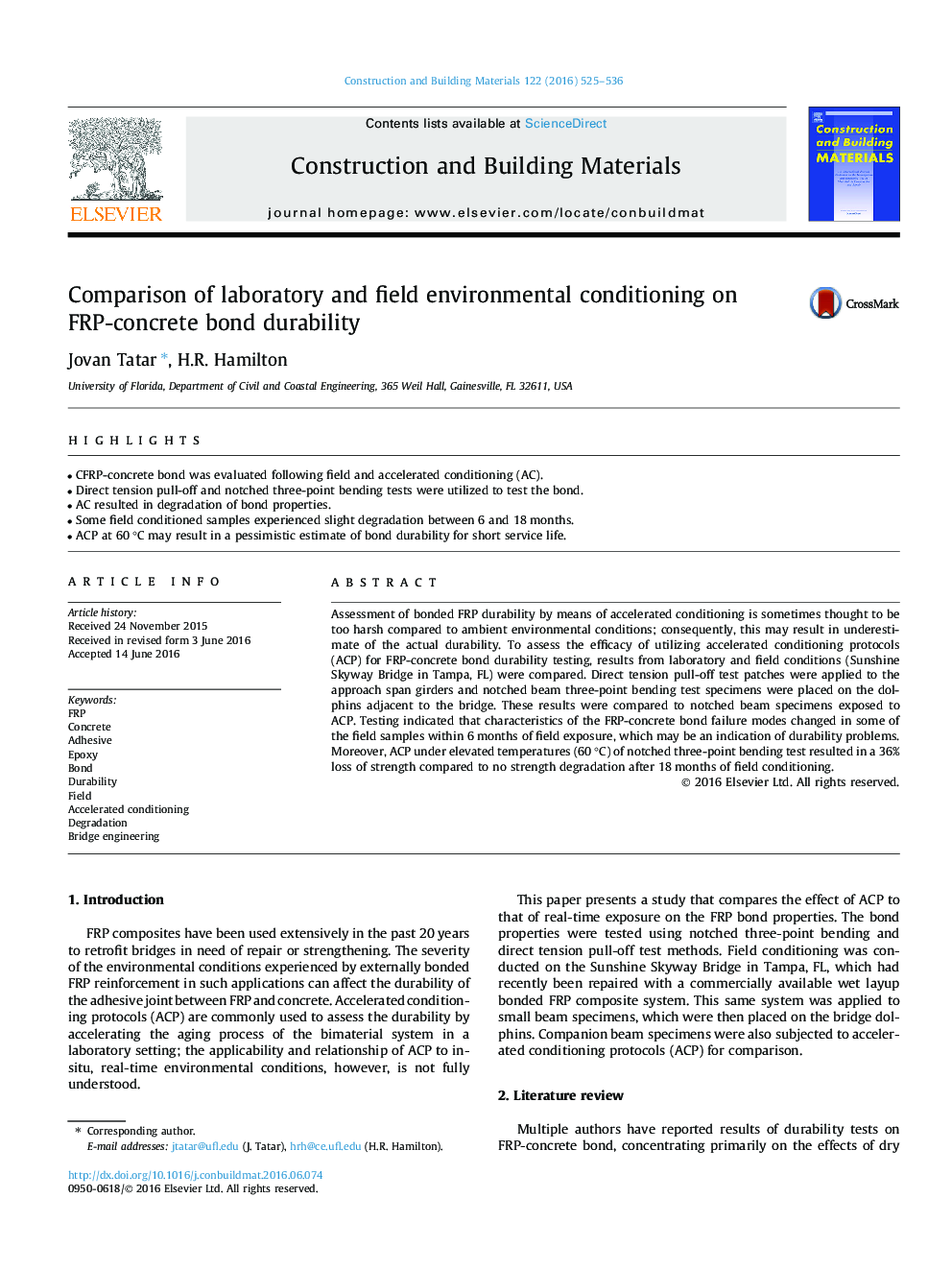| Article ID | Journal | Published Year | Pages | File Type |
|---|---|---|---|---|
| 6718223 | Construction and Building Materials | 2016 | 12 Pages |
Abstract
Assessment of bonded FRP durability by means of accelerated conditioning is sometimes thought to be too harsh compared to ambient environmental conditions; consequently, this may result in underestimate of the actual durability. To assess the efficacy of utilizing accelerated conditioning protocols (ACP) for FRP-concrete bond durability testing, results from laboratory and field conditions (Sunshine Skyway Bridge in Tampa, FL) were compared. Direct tension pull-off test patches were applied to the approach span girders and notched beam three-point bending test specimens were placed on the dolphins adjacent to the bridge. These results were compared to notched beam specimens exposed to ACP. Testing indicated that characteristics of the FRP-concrete bond failure modes changed in some of the field samples within 6 months of field exposure, which may be an indication of durability problems. Moreover, ACP under elevated temperatures (60 °C) of notched three-point bending test resulted in a 36% loss of strength compared to no strength degradation after 18 months of field conditioning.
Related Topics
Physical Sciences and Engineering
Engineering
Civil and Structural Engineering
Authors
Jovan Tatar, H.R. Hamilton,
